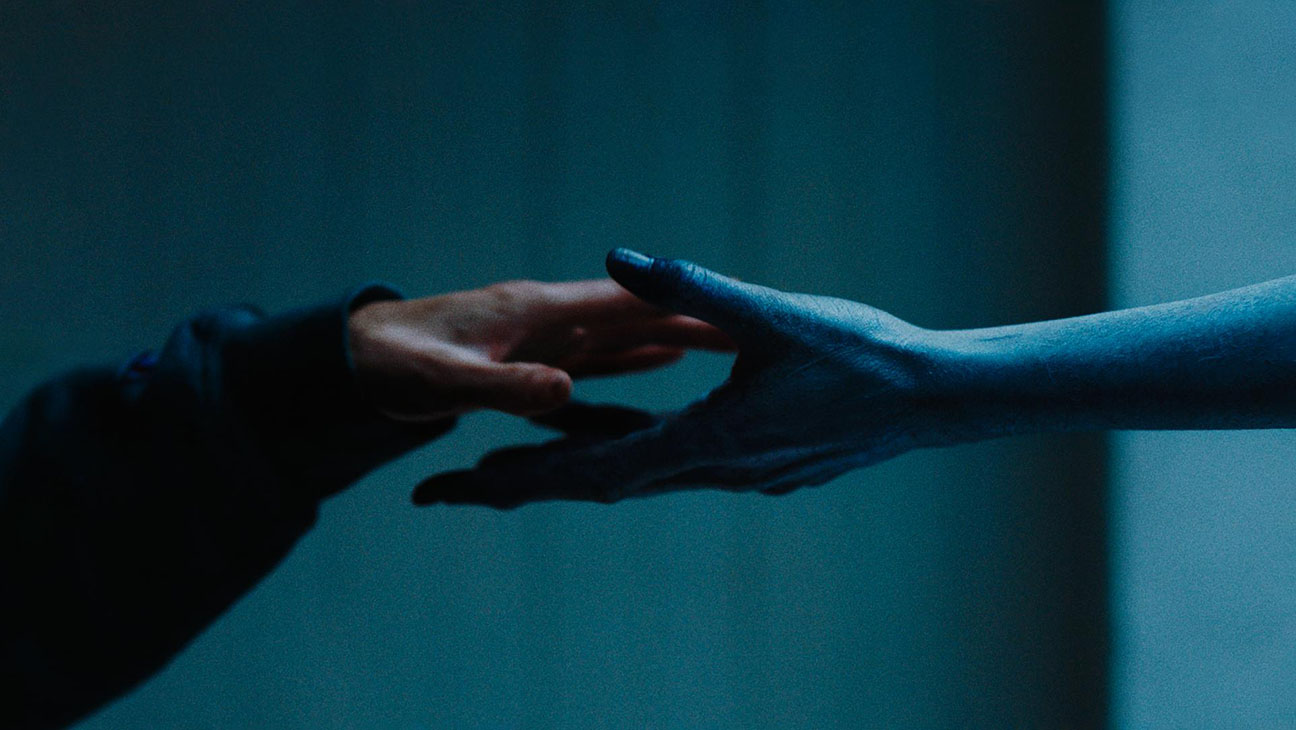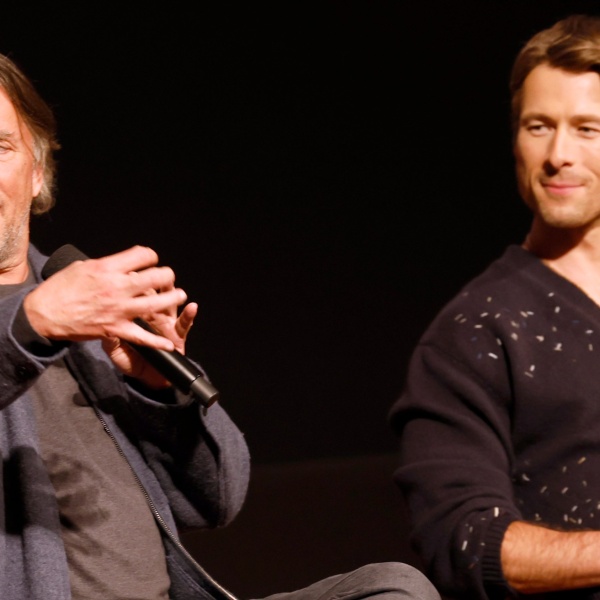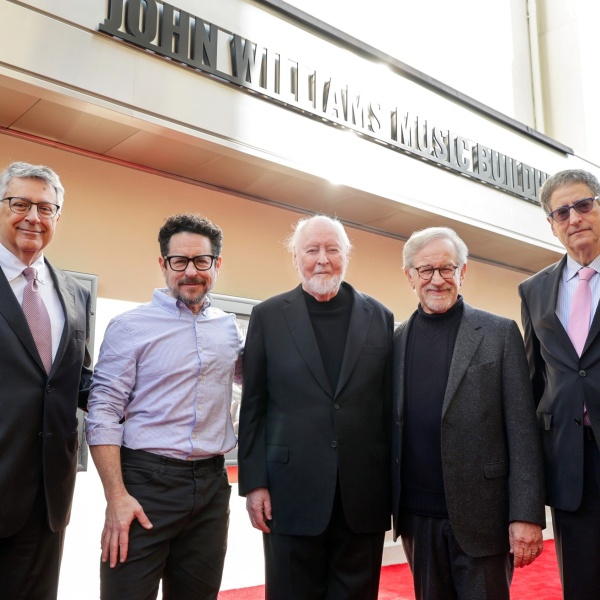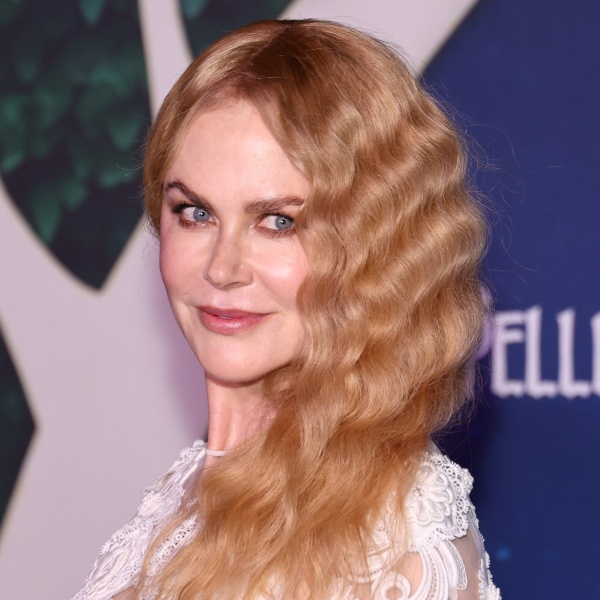Once a taboo broken only by the boldest of directors, violence against children has become increasingly common in horror films. Credit (or blame) for this phenomenon — at least in its more recent incarnations — goes to “Hereditary,” a movie that boldly broke the once-sacred familial contract. There’s bound to be diminishing returns when other filmmakers start taking inspiration from such transgressions, however. Six years later, that brings us to “Family,” premiering at the 2024 edition of SXSW.
Directed by first-timer Benjamin Finkel, the film treads similar thematic territory to Aster’s film, but inverted, with a sci-fi/horror twist. “Family” begins with a quick, disturbing cold open, as 11-year-old Johanna (Cameron Dawson Gray) desperately bangs on the window of a building we later learn is the temple where her grandfather (Allan Corduner) serves as a rabbi. Then her mother (Ruth Wilson) comes up behind her, grabs her by her ankle, and drags her across the concrete as she screams, “Mommy, please, no!” Mom doesn’t listen, stabbing her daughter right there on the sidewalk.
From that unsettling scenario, we cut to Johanna, a homeschooled only child, settling into the creaky old house where she and her parents have relocated so her father (Ben Chaplin), who’s dying of brain cancer, has access to better medical care. Johanna seems like a normal, if lonely, kid: She plays with her dog, swims in a neighbor’s pool, and reads out loud from “The Wizard of Oz” as Mom corrects her pronunciation. Dad’s illness punctures family time with upsetting spasms and noises — enhanced by the sound mix, as one might hope in a horror movie — but, for the most part, things are as fine as they can be.
Then Johanna’s superstitious attachment to an odd, egg-shaped birdhouse becomes malevolent, and she becomes convinced that it’s occupied by an evil spirit that’s killing her dad and turning her mom against her. Wilson plays her character as cold and even cruel, without much warmth in early scenes to underline her transformation into a filicidal monster. By contrast, Chaplin is playful and affectionate, until he’s too sick to have much personality at all. The film is very much from Johanna’s point of view, which explains the biased portrayals of each parent. Johanna is understandably upset about her dad’s illness, and her mom is too busy caring for him to offer her emotional support; everyone’s perspective is understandable, but the audience has to reach to see things from Mom’s side.
Writer-director Finkel cleverly employs this subjectivity later on in the film, when what Johanna (and, by extension, the audience) sees contrasts with what her parents say is happening. Johanna bites into a sandwich and realizes it’s full of broken glass; she runs to tell her grandfather, who calls her mom to come to the temple and talk things out. Mom says Johanna took some news about her dad’s health poorly, started biting her tongue, and ran out of the house. Is this a callous coverup of child abuse? Is Johanna experiencing a psychotic break brought on by extreme stress? The movie has picked its side, but certain doubts still linger.
“Family” delivers in terms of horror, not only with its distressing themes of child abuse, but also with its imagery: A demonic manifestation of the family dog is suitably creepy, and an unexpected turn towards cosmic sci-fi widens the film’s scope in an intriguing way. The issue is that there isn’t a solid foundation for the shock and awe. By presenting events from a biased perspective from the beginning, Finkel creates a disconnect. If there ever were good times for this family, we don’t see them, save for in a montage late in the film — at which point it’s far too late to emotionally connect to them.
Finkel’s direction is also very much that of a debut feature filmmaker who’s got a lifetime’s worth of ideas stored up, and who crams them all into one movie. The impulse is understandable, but again the Terrence Malick-esque reveries and gliding camera movements feel unearned: There’s no real reason to have so many pull outs and shots of tree branches blowing in the breeze. Horror inserts inspired by Japanese filmmaker Kiyoshi Kurosawa — himself inspired by butoh dancers — are more relevant to the subject matter, but again don’t do much in terms of upping the emotional stakes.
Instead, much of “Family” plays like a calling card, for its director and for its young star. That’s not a bad thing for a debut feature to be; both will hopefully go on to make more movies, given what they show that they can do here. But it’s appropriate that this film is shot from the perspective of a young person, given that both still have room to grow.
Grade: B-
“Family” premiered at SXSW 2024. It is currently seeking U.S. distribution.





